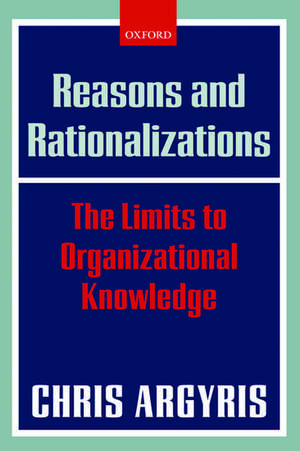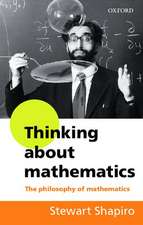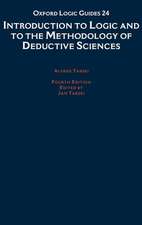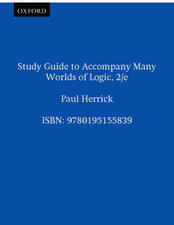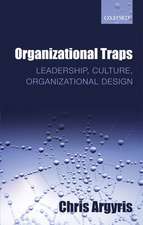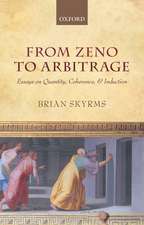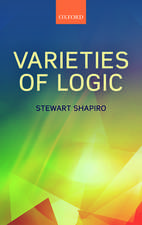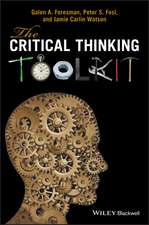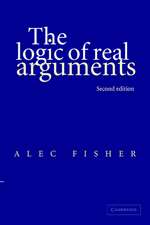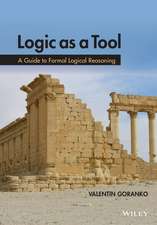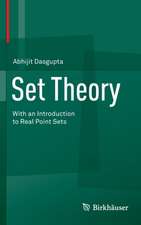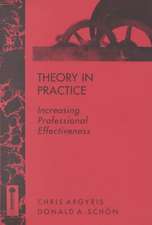Reasons and Rationalizations: The Limits to Organizational Knowledge
Editat de Chris Argyrisen Limba Engleză Paperback – 5 ian 2006
| Toate formatele și edițiile | Preț | Express |
|---|---|---|
| Paperback (1) | 314.30 lei 31-37 zile | |
| OUP OXFORD – 5 ian 2006 | 314.30 lei 31-37 zile | |
| Hardback (1) | 640.77 lei 31-37 zile | |
| OUP OXFORD – 25 mar 2004 | 640.77 lei 31-37 zile |
Preț: 314.30 lei
Preț vechi: 360.35 lei
-13% Nou
Puncte Express: 471
Preț estimativ în valută:
60.15€ • 62.56$ • 49.66£
60.15€ • 62.56$ • 49.66£
Carte tipărită la comandă
Livrare economică 03-09 aprilie
Preluare comenzi: 021 569.72.76
Specificații
ISBN-13: 9780199286829
ISBN-10: 0199286825
Pagini: 252
Ilustrații: Tables
Dimensiuni: 138 x 216 x 15 mm
Greutate: 0.32 kg
Editura: OUP OXFORD
Colecția OUP Oxford
Locul publicării:Oxford, United Kingdom
ISBN-10: 0199286825
Pagini: 252
Ilustrații: Tables
Dimensiuni: 138 x 216 x 15 mm
Greutate: 0.32 kg
Editura: OUP OXFORD
Colecția OUP Oxford
Locul publicării:Oxford, United Kingdom
Recenzii
Review from previous edition Reasons and Rationalizations is one of the most challenging and powerful books produced in the field of management for many years. It is not surprising when you consider it was written by one of the world's leading management scholars. Professor Argyris' contribution to the management and applied social science literature has no rival, he is in a league literally by himself. This outstanding book is a must read for all managers and executives, academics in business schools, applied social scientists, and any others prepared to think about and confront the challenges of organizational life in our times.
... the book provides a foundation in double loop learning for senior management executives, and organizational consultants.
For the past half-century Chris Argyris has been one of the most important thinkers about organizations and personality, and developing creative interventions to bring out the best of both. This book is (for me) his clearest, most cogent, and perhaps most important, in summing up a lifetime of thought, action, and heart on the critical issue of how we live our lives in integrity, both in and out of organizations.
For nearly half a century, Chris Argyris has been seeking to make knowledge a guiding light for human action, and more specifically the vehicle for a more humane, more effective and indeed more just workplace. Few authors have made such a persuasive case for management learning as possessing the potential of enlightening as well as liberating organizational participants from some of the unnecessary hardships and anguish that they experience as a routine part of their lives in organizations.
... the book provides a foundation in double loop learning for senior management executives, and organizational consultants.
For the past half-century Chris Argyris has been one of the most important thinkers about organizations and personality, and developing creative interventions to bring out the best of both. This book is (for me) his clearest, most cogent, and perhaps most important, in summing up a lifetime of thought, action, and heart on the critical issue of how we live our lives in integrity, both in and out of organizations.
For nearly half a century, Chris Argyris has been seeking to make knowledge a guiding light for human action, and more specifically the vehicle for a more humane, more effective and indeed more just workplace. Few authors have made such a persuasive case for management learning as possessing the potential of enlightening as well as liberating organizational participants from some of the unnecessary hardships and anguish that they experience as a routine part of their lives in organizations.
Notă biografică
Chris Argyris received his PhD in organizational behavior from Cornell University and served on the Yale University faculty for the next twenty years. He then became the James Bryant Conant Professor of Education and Organizational Behavior at Harvard University and held joint appointments over time at the Business, Law, and Kennedy Schools. His early research dealt with organizational structures and organizational change. His primary research methodology has been intervention, and his ongoing concern has been the applicability of knowledge.
